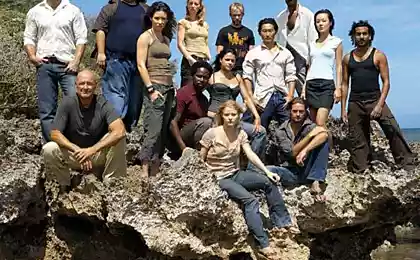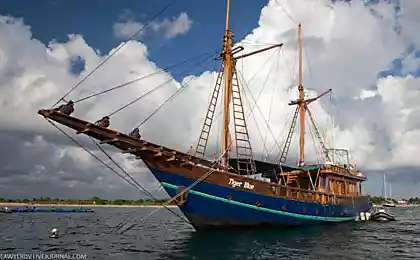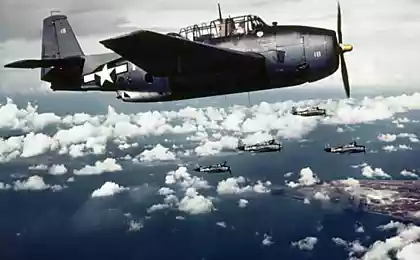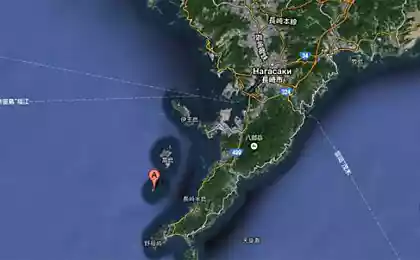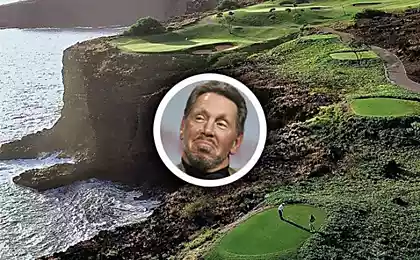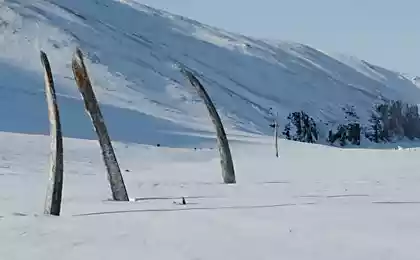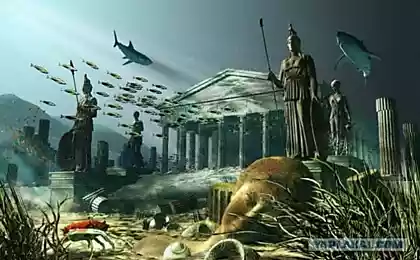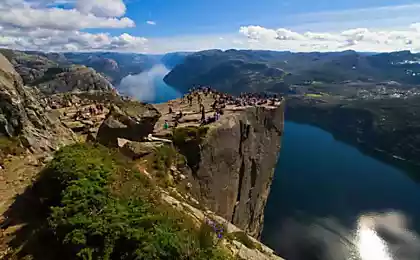635
Punuk Islands. Cemetery Bering Sea (3 photos)
Small core Punuk located near the island of St. Lawrence, in the Bering Sea. It is isolated from the civilization of the island, or rather a few islands that have become a natural cemetery. Here you will find not only the remains of animals, but also many human bones. The islands are also known as the island Pinik or Punguk.
Located to the east of the island of St. Lawrence, the three small islands were first discovered by Captain Tebenkov in 1849. And it turned out that it is through these islands are strong water currents that bring to the island the remains of the dead sailors and animals.
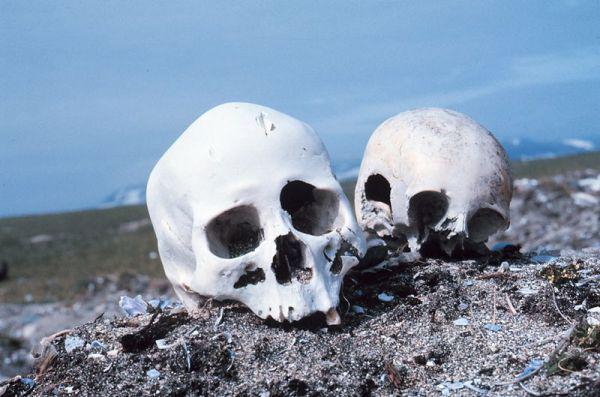
Scientists are constantly finding such a pair, and even a handful of skulls, and it seems that they died together, but their deaths could have occurred thousands of miles from each other, with a difference of a few decades, but during the course of time it has brought their bones here.
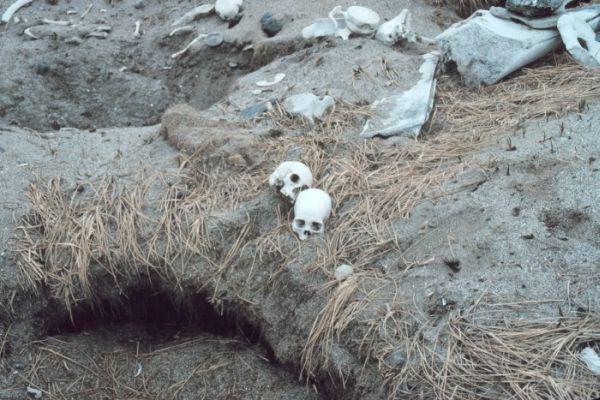
At the same time the Bering Sea is the richest source of marine fish. For example, the United States is half of the total catches his fish. According to the National Wildlife Federation, the United States, it is here that caught more than 1 billion. Tonnes of pollock, which goes on all the crab sticks and fillets for fast food.
And while Punuk constantly alludes to man that the nature of all still stronger and that sooner or later there will be ...
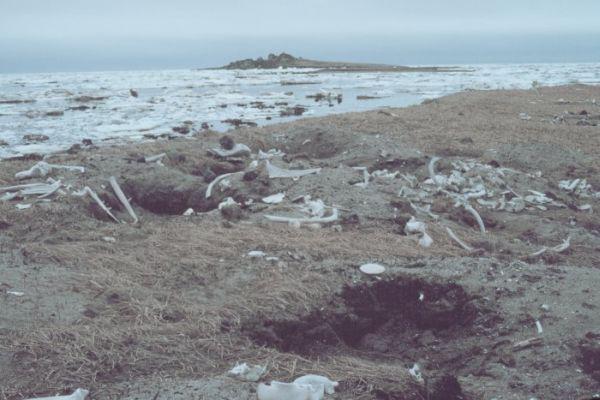
Located to the east of the island of St. Lawrence, the three small islands were first discovered by Captain Tebenkov in 1849. And it turned out that it is through these islands are strong water currents that bring to the island the remains of the dead sailors and animals.

Scientists are constantly finding such a pair, and even a handful of skulls, and it seems that they died together, but their deaths could have occurred thousands of miles from each other, with a difference of a few decades, but during the course of time it has brought their bones here.

At the same time the Bering Sea is the richest source of marine fish. For example, the United States is half of the total catches his fish. According to the National Wildlife Federation, the United States, it is here that caught more than 1 billion. Tonnes of pollock, which goes on all the crab sticks and fillets for fast food.
And while Punuk constantly alludes to man that the nature of all still stronger and that sooner or later there will be ...

